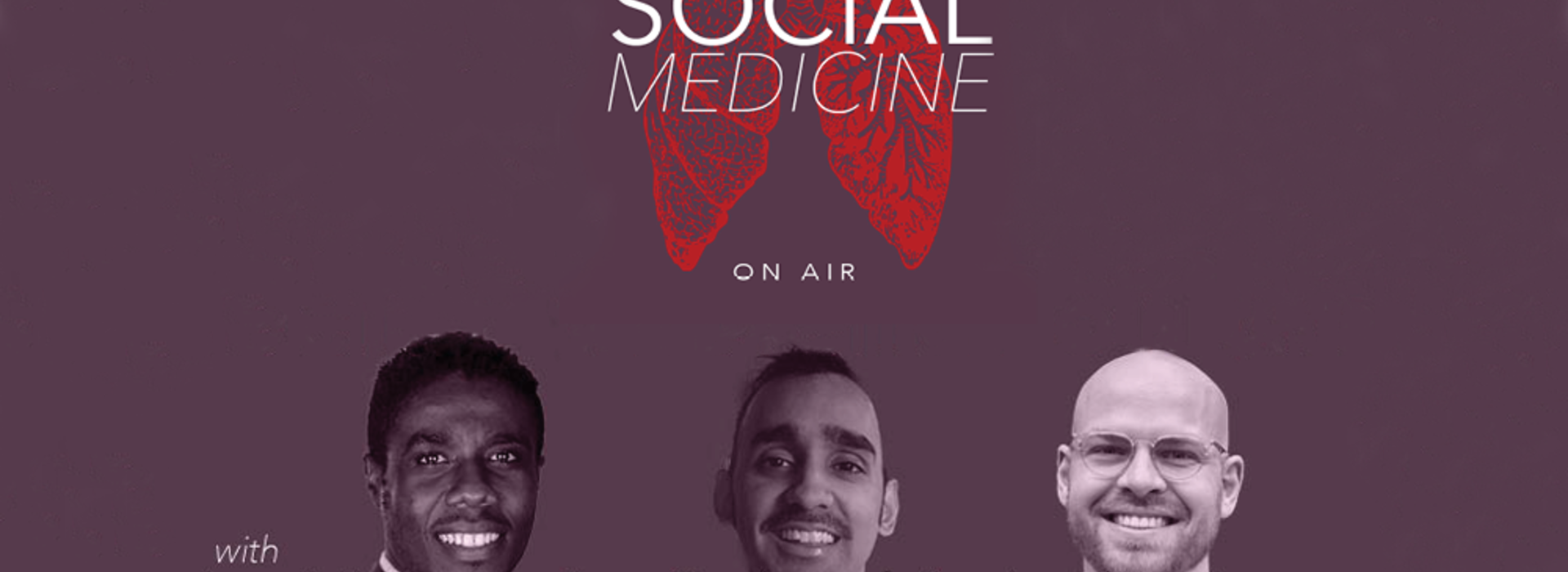
‘Social Medicine on Air’ Podcast Hopes to Build Community and Provide a Platform for Conversation
In 2018, University of Minnesota Medical School student Brendan Johnson took a course in Mirebalais, Haiti, called “Beyond the Biological Basis of Disease.” The course deconstructed many different ideas, often forcing students to ask questions about the social determinants of health as well as the root causes behind those social determinants.
For example, the Lancet continues to publish content about how climate change is one of the single greatest threats to human health in the 21st century, yet medical students aren’t given adequate time to deconstruct the issue and how it relates to their work. Similarly, students learn about diseases like cholera, diabetes or asthma without enough attention to how ongoing structural injustice continues the burden of these diseases.
“I loved my first two years of medical school, but there were still a lot of questions that I felt needed to be discussed. How would our healthcare system look different if justice was a key value, and what is the history that has led to present disparities? For example, American life expectancy has shockingly declined over the past few years, but we didn’t get a chance to understand what this means, or how medicine fits into that picture. There was always more to discuss,” Johnson said.
Unfortunately, there are still only 24 hours in a day. Medical students are extremely busy, and with so much time dedicated to learning anatomy and scientific processes, they’re sometimes unable to explore the moral and ethical dilemmas that can arise during medical care. As Brendan reflected on these conversations, he began to consider how others could discuss or learn more about them.
He and several of his peers who were captivated by the idea of “social medicine” began to brainstorm ways that they could keep it in the public domain. Social medicine takes the perspective of science being inextricably related to a story, the human experience, and the social conditions it exists in.
“I first learned about social medicine through a lunch lecture given by Dr. Michael Westerhaus. But beyond an event like this, it felt like there wasn’t a good introduction out there to the world of social medicine. I’ve always loved the accessibility of podcasting, so we thought it would be a good way for people to get their ideas percolating without having to read an entire book or take a full course. We’re getting ideas out there in an accessible way,” Johnson said.
After discussing with future collaborators Raghav Goyal, an MS4 at the University of Vermont Medical School, and Jonas Attilus, a PGY-1 at Boston Medical Center, the trio decided to begin “Social Medicine On Air,” which has now published over a dozen episodes on topics like medical ethics during a pandemic, medical activism, antiracist medicine and teenage motherhood, just to name a few.
“I’ve been a fan of listening to podcasts for a long time, so you get a feel for what is quality content and what is not. It’s very much a ‘do-it-yourself’ attitude at the beginning, but the communication skills you build from it are also great. We really wanted to have an interview style to build community and because it allows our guests to share not only their expertise but also their stories, which are so important when changing hearts and minds,” Johnson said.
Medicine is a discipline that can transcend borders in ways many other fields aren’t capable of doing due to political or legal constraints. Information and ideas are often shared between different research institutions throughout the world to the benefit of patients. Medicine allows the podcast hosts to highlight work from different places, such as an episode that features a physician from Zimbabwe, Tinashe Goronga, who travels between his native country and the Netherlands with a focus on antiracism and health justice, global health and neoliberalism. By amplifying his unique perspective, Social Medicine On Air can connect ideas together across cultures and build community among those who are already thinking about social medicine issues.
“We’re hoping we can help change conversations about medicine, justice, equality, and human rights, and help people bring a more critical lens towards health practices by asking new questions. We hope to add to the community of people that are interested in these new perspectives. There are already a lot of people in the Twin Cities area that are in this ecosystem, and it’s wonderful to be a part of it,” Johnson said.
In the future, the hosts are hoping to continue to grow their following while continuing their diverse interviews on the show. For now, you can find the podcast on their social media channels or listen to it through a variety of popular platforms.
Twitter: @SocMedOnAir
Facebook: @socialmedicineonair
Spotify: https://open.spotify.com/show/24HnymiNjL3XOTBx3X63oo
Apple: https://podcasts.apple.com/us/podcast/social-medicine-on-air/id1526081339